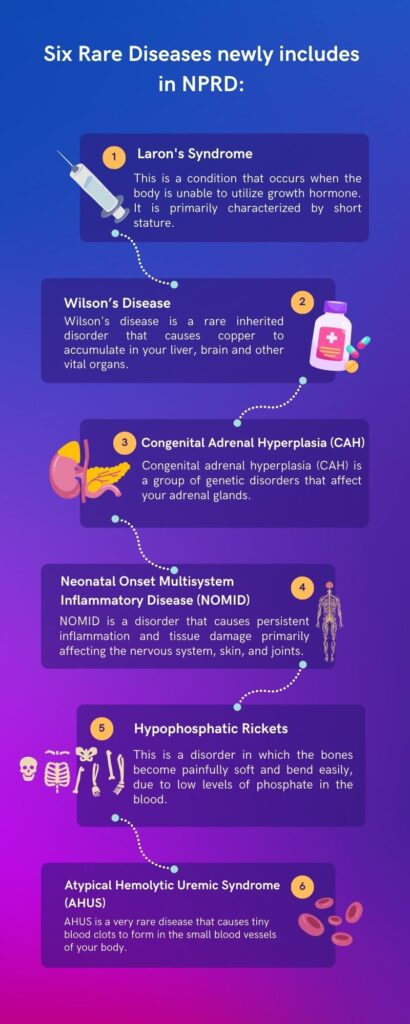The National Policy for Rare Diseases (NPRD) was introduced in March, 2021 by the Ministry of Health and Family Welfare.
On Jan. 18, 2023, the Department of Health and Family Welfare announced that six more rare diseases are being included in the NPRD. This will enable people suffering from such diseases to get financial aid from the government.
“There were requests to include more diseases in the NPRD. So, the government had formed a panel to decide whether to include them or not,” said an official from the Rare Disease Cell of the Health and Family Welfare department. “Based on the scientific data provided by this panel, the decision to include these six rare diseases has been taken.”

The World Health Organisation (WHO) defines a rare disease as “a debilitating lifelong disease or disorder with a prevalence of ten or less per 10,000 population.” The six rare diseases that have now been included in the NPRD are Laron’s Syndrome, Wilson’s Disease, Congenital Adrenal Hyperplasia (CAH), Neonatal Onset Multisystem Inflammatory Disease (NOMID), Hypophosphatic Rickets and Atypical Hemolytic Uremic Syndrome (AHUS).
Dr. Jairam, who has been working with rare diseases for the past 15 years, said that the treatment of a rare disease is very expensive. He said that most of the rare diseases require lifelong care and medication, which can be a mental and financial burden on the patient. “The total cost of treatment can add up to one crore rupees or more,” added the doctor.
The NPRD provides financial support of up to Rs. 50 lakhs to anyone with a rare disease. In order to avail the benefits of the policy, one has to go to the nearest Centre of Excellence (CoEs) and get assessed. In India, eight CoEs have been identified for diagnosing and treating rare diseases. And there are five Nidan Kendras for genetic testing and counselling services.
It has been reported in December, 2022 that the beneficiaries are not receiving the financial aid, even though the policy was introduced in March 2021. Fauzia Khan, Member of Parliament (MP), Rajya Sabha, claimed that the 415 patients registered under the policy are yet to receive any aid. She said that this is hindering their treatment and causing them harm.
“We are doing our best to ensure that the scheme is running smoothly,” said the official. He said that there are no problems with any part of the policy as of now and that they would ensure that it stays that way. He added that people suffering from the six rare diseases that have now been included would not face any issues in getting financial aid.
Dr. Mustafa, a public health expert, said that this is a move in the right direction. He said that a lot more research has to be done in the aspect of rare diseases as there is very little information available now. “The lack of information and research makes it very hard to provide proper treatment for rare diseases. This is one of the reasons why the treatment is so expensive,” he said.
“People lack awareness on everything related to rare diseases in the society. While it is good that they are including more diseases in NPRD, it will be of no good if people are not aware,” said Dr. Mustafa. He added that the next logical step for the government would be to start awareness programs and ensure that people are getting the help they need.




